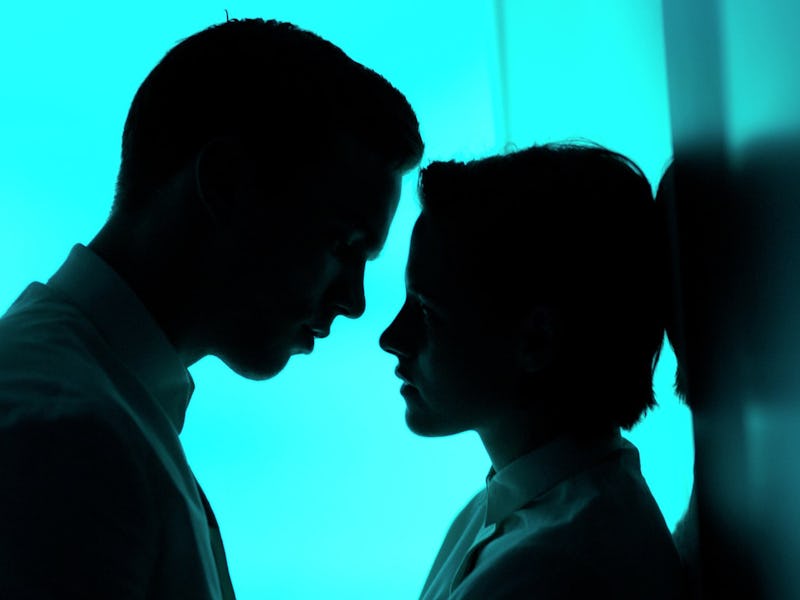The most underappreciated sci-fi love story on Netflix deserves another shot
This understated romance is oddly relevant and still beautiful.

Dystopian romances were all the rage in the early 2010s. Hunger Games, Divergent, even The Handmaid's Tale, all explored what it's like to fight to be with the one you love. However, each of these focus mainly on overturning the system that separates them in in a large rebellion. It's unusual a story with the same premise is understated and mature, but one film on Netflix achieves the perfect balance between realism and the youthful wonder of being in love.
Equals is a 2015 A24 film that stars Nicholas Hoult and Kristen Stewart as young lovers navigating a dystopian society where genetically engineering has left humans incapable of feeling emotion. This leaves the world remarkably peaceful and efficient, but clinical and impersonal. Silas, an illustrator, has a nightmare and seeks medical help.
He's diagnosed with "Switched On Syndrome," and told he will experience more and more intense emotions until he will need to be contained in the Defective Emotional Neuropathy facility, known as the DEN. Even in an emotionless world, he still is ostracized by his colleagues, but becomes fascinated by a writer named Nia.
Nia is what's known as a "hider," someone with SOS that refuses to be diagnosed, struggling to show emotion at every moment. Of course, the two fall in love, knowing that if anyone knows of their "coupling behavior" they'll be sent to the DEN.
The cold, sanitized world of The Collective.
Their journey is told through haunting montages of sidelong looks and heightened moments of extreme passion. It's the ultimate exercise in romantic tension. As they look for an escape plan, director Drake Doremus uses every trick in the book to demonstrate the extreme amounts of emotion reverberating between Silas and Nia.
A dystopian story is only as good as its worldbuilding, and Equals pulls this off flawlessly, expositing the history of the society known as the Collective in what is basically a podcast Silas listens to while working on his illustrations. The current world feels incredibly futuristic too, but not in a cheesy Tron way. This is the future of minimalist aesthetics influenced by Apple, evident in the sleek user interfaces of the workstations to the pristine white clothing of the characters.
The acting is also impeccable. It's difficult to not show any emotion, but it's near impossible to portray someone experiencing emotion for the first time. Nicholas Hoult does so with a confused, vulnerable wonder you can't help but sympathize with, and Kristen Stewart's nuanced emotion bubbling under the surface puts a final nail in the Twilight meme coffin.
Silas and Nia steal a moment together.
Watching in the year 2020, it's difficult not to see some similarities between the emotionless dystopia and the world we live in today. There are discussions about SOS possibly being contagious, Silas even offers to wear a face mask. There are also many shots of Silas walking six feet behind Nia to avoid suspicion, a habit that's all too familiar now. Of course, our pandemic isn't emotions, but its interesting to see the parallels.
Unlike many other romantic movies, this doesn't end with a triumphant kiss and a pop song. As much as it is dystopian, it's also realistic, and sometimes love doesn't get the perfect happy ending it deserves. Whether or not the ending of Equals is happy is purposefully up for debate. Open endings are risky, but considering the subtlety of the rest of the film, leaving the ending up to interpretation is still a satisfying conclusion.
Even though it may not feel as high stakes as many other sci-fi films, the beauty of Equals lies in the small moments, the exciting looks and genuine connection shared by two people in a world that doesn't — and can't —understand them. It's the perfect Netflix watch, whether it's with someone you love or to revel in your own isolation.
Equals is now streaming on Netflix.